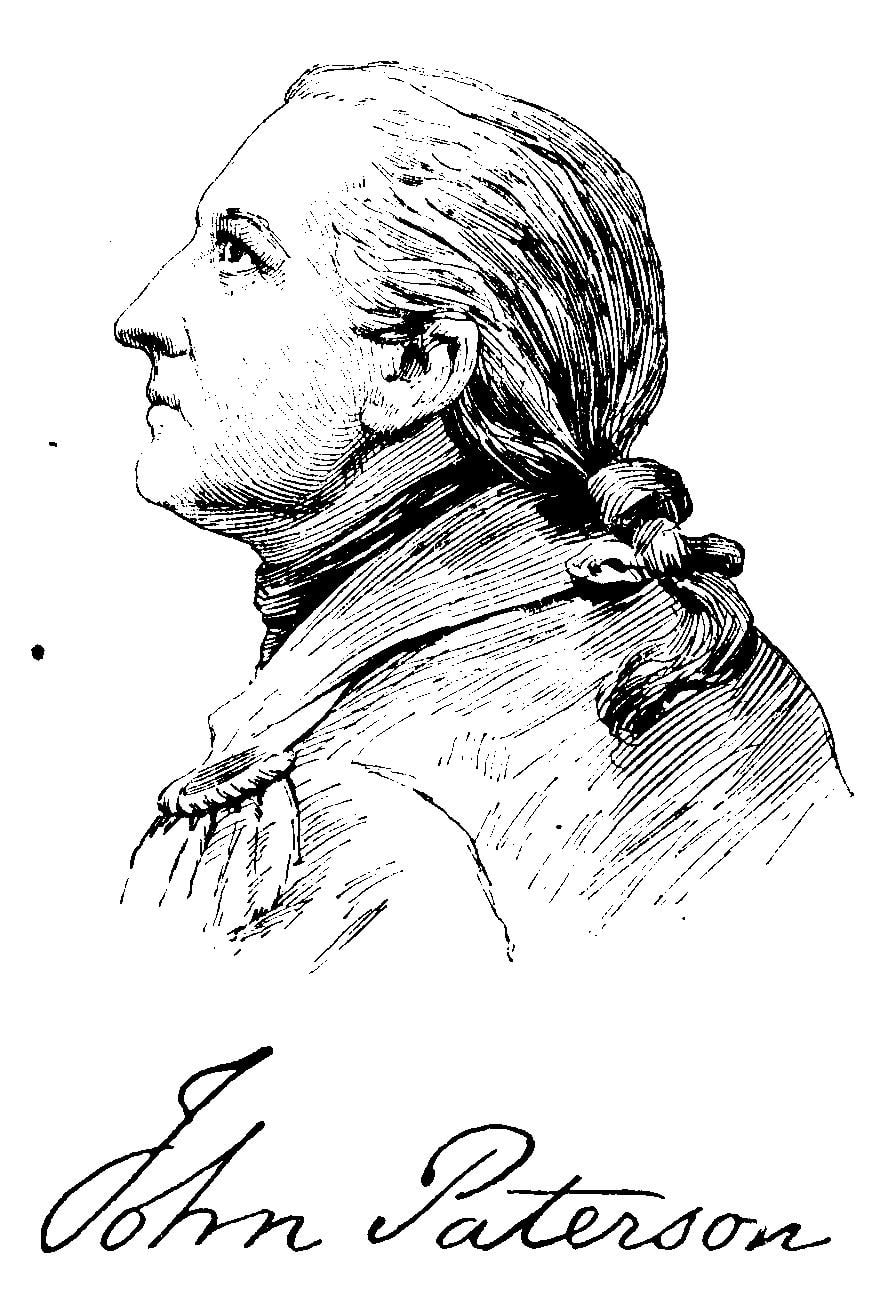He was born in the Connecticut Colony and graduated from Yale in 1762. After graduation, Paterson studied law, attained admission to the bar, and practiced. He was a justice of the peace in New Britain until 1774, when he moved to Lenox, Massachusetts. He married Elizabeth Lee and had at least one son and one daughter. He was elected to the Massachusetts General Court in both October of that year and in 1775.

Jump to:
John Paterson Facts: American Revolution
When the American Revolutionary War began in April 1775, Paterson was a colonel, and he marched with his militia unit to take part in the siege of the British Army in Boston. Paterson's command, the 1st Massachusetts Regiment, saw action at the Battle of Bunker Hill. After the British evacuation of Boston, Paterson's regiment took part in the Invasion of Canada and the battles of Trenton and Princeton in New Jersey. On February 21, 1777, Paterson was promoted to brigadier general in the Continental Army.
During the Saratoga Campaign of 1777, Paterson commanded a brigade of Horatio Gates' army, consisting of the 10th, 11th, 12th, and 14th Massachusetts Regiments and the 1st Berkshire County Militia Regiment.
Paterson served under George Washington at the Battle of Monmouth in 1778. In September 1783, at the end of the war, he received the brevet rank of major general as a commendation for his superior service throughout the war.
John Paterson Facts: Post-Revolution
After the war, Paterson returned to Massachusetts, where he continued to serve in the militia as a major general. In 1786, Paterson commanded militia units that took part in the quelling of Shays's Rebellion.
Paterson later moved to Lisle, New York. He was a member of the New York State Assembly in 1793 and a member of the 8th United States Congress, holding office from March 4, 1803 to March 3, 1805. In 1802, Deborah Sampson, a woman from Massachusetts who disguised herself as a man to serve in the Army and spent several months as Paterson's waiter, visited him in New York while she was on a lecture tour speaking about her military experience.
Paterson died in Lisle on July 19, 1808. He was originally interred at Riverside Cemetery in Whitney Point, New York. In 1892, he was reburied at Church on the Hill Cemetery in Lenox, Massachusetts.
